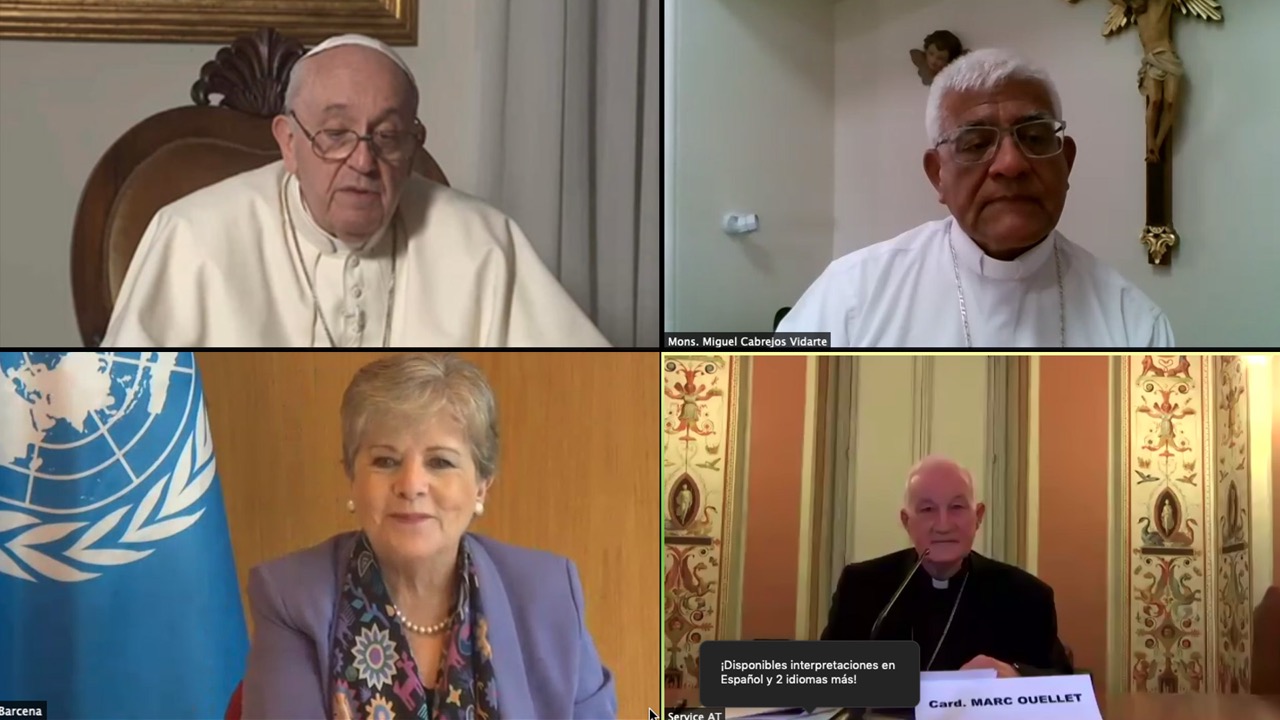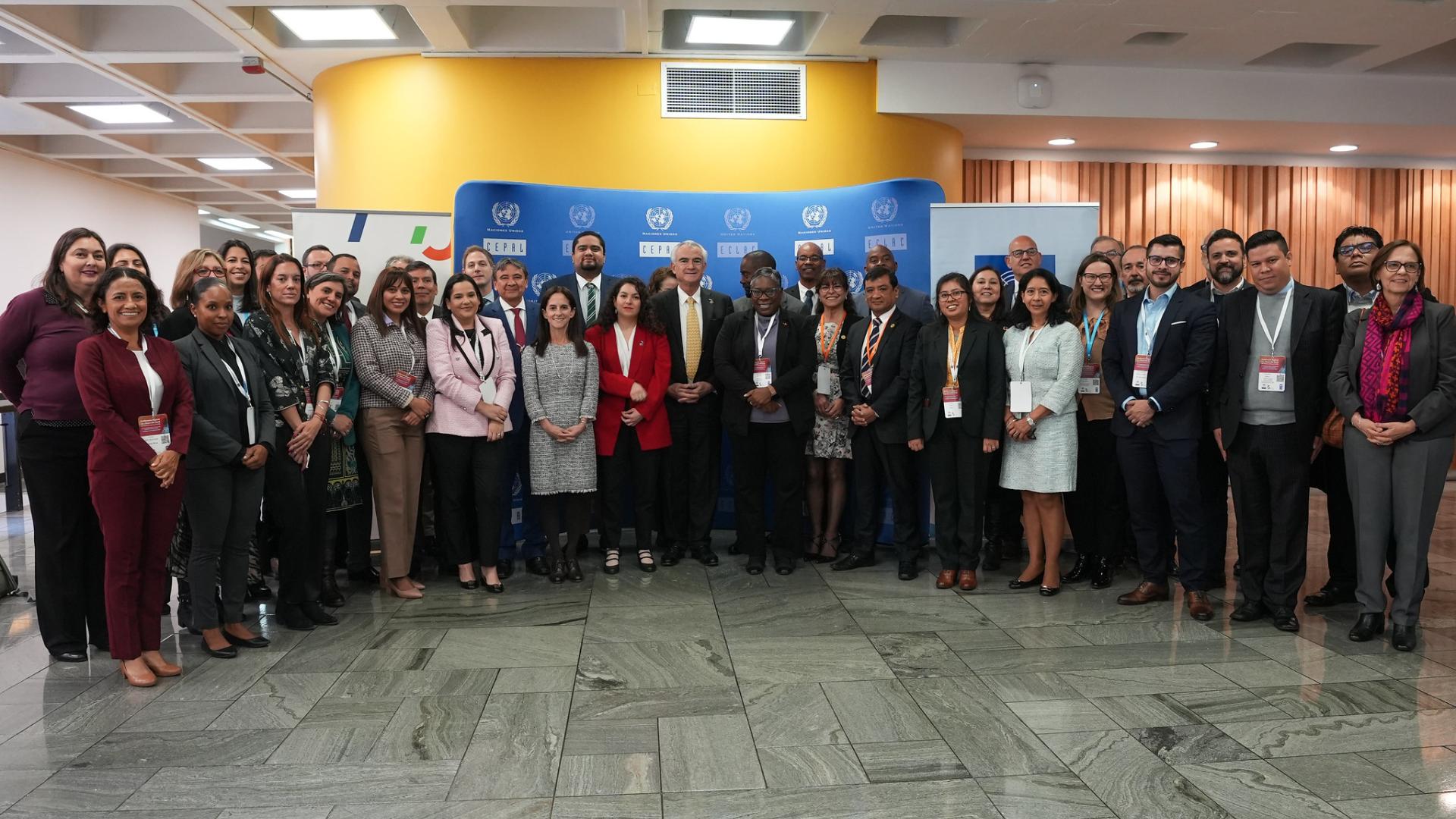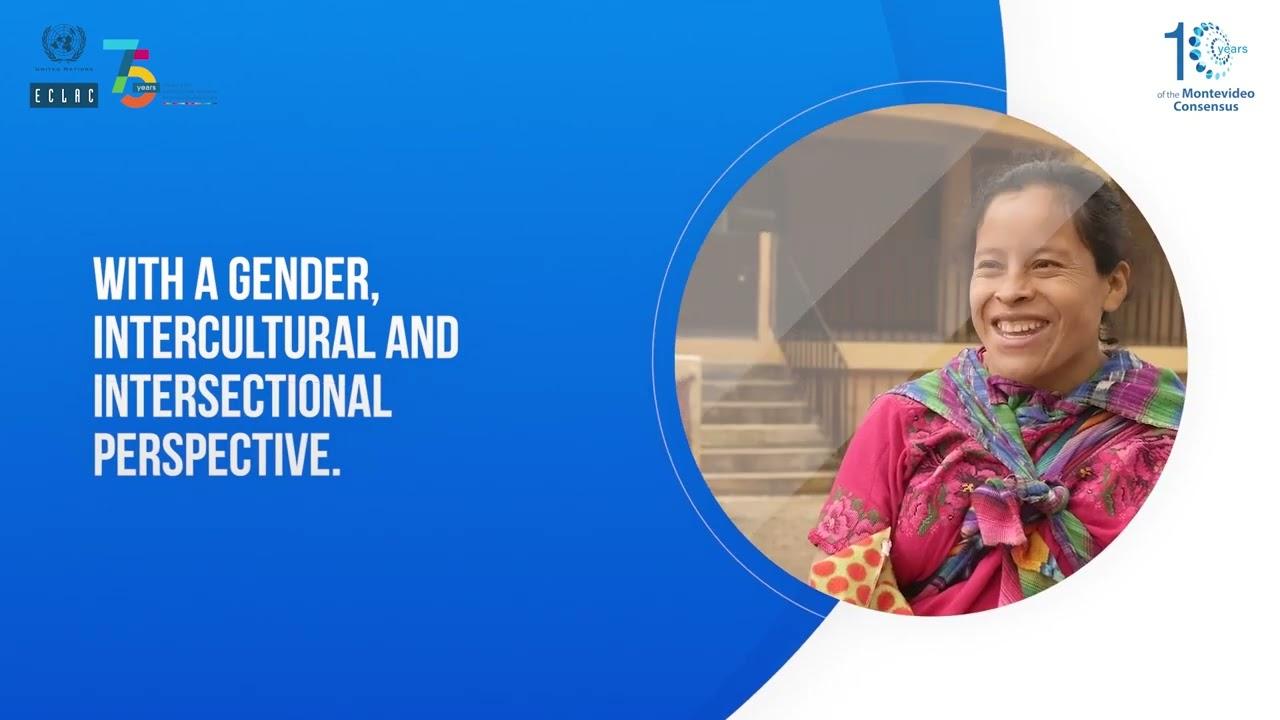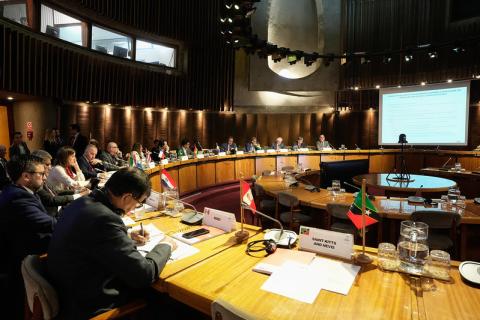Briefing note
The Executive Secretary of the United Nations Economic Commission for Latin America and the Caribbean (ECLAC), Alicia Bárcena, called today for redoubling efforts to generate new compacts and coalitions in the region that would allow for building back better after the coronavirus crisis and for transforming our societies with equality and sustainability, during a high-level virtual seminar organized by the Pontifical Commission for Latin America (CAL) and the Pontifical Academy of Social Sciences (PASS), of the Vatican, along with the Latin American Episcopal Council (CELAM).
“At ECLAC we are convinced that, if coalitions are built and the necessary compacts are achieved, restoring policy as an instrument, with transformative leaderships that know how to listen and analyze mistakes and modify conduct, we will be able to make a change in the development pattern as the current situation demands of us,” the senior UN official stated during the webinar entitled “Latin America: Church, Pope Francis and pandemic-related scenarios,” which featured the special participation of Pope Francis himself (via a video message).
The first day of this event – which will run through tomorrow, November 20 – also included the participation of Cardinal Marc Ouellet, President of CAL; Monsignor Marcelo Sánchez Sorondo, Chancellor of PASS; Monsignor Miguel Cabrejos Vidarte, President of CELAM; and Carlos Afonso Nobre, recipient of the 2007 Nobel Peace Prize.
In his message to the meeting, Pope Francis indicated that the COVID-19 pandemic has amplified and made more evident the problems and socioeconomic injustices that already seriously affected all of Latin America, with greater severity for those who are poorest.
“Not everyone has the resources needed to take basic protective measures against the pandemic. This should alarm us: does everyone have safe housing? Access to water? Do they have the resources to sanitize the rooms? Stable work? The pandemic made our preexisting vulnerabilities even more visible,” he sustained.
Pope Francis added that the pandemic has had devastating effects that we will continue to experience for a long time, above all in our economies, which require solidarity-based assistance and creative proposals to ease the burden of the crisis.
“In the kingdom of God, there is bread for everyone and more to spare. And social organization is based on contributing, sharing and distributing. Not on owning, excluding and accumulating. We are all called upon to carry out our work and mission with responsibility, with transparency and honesty,” he stated.
Furthermore, he indicated that in addition to the pandemic, Latin America suffers from a lack of land, housing and work. “This requires a generous response and immediate attention. The depth of the crisis demands a ruling class that is up to the task of searching for viable solutions,” the Pope said.
In her remarks, Alicia Bárcena recalled that just a few weeks ago, at its thirty-eighth session, ECLAC presented a set of policy proposals contained in the document Building a New Future: Transformative Recovery with Equality and Sustainability to the 33 countries of Latin America and the Caribbean. The goal is to bring about a transformative recovery of the development model in the region, in line with the 2030 Agenda for Sustainable Development.
“This is an invitation that calls for rethinking our lifestyles, our relationships, the organization of our societies and above all the meaning of our existence, and for recovering – as the Fratelli Tutti encyclical says – the passion shared by a community of belonging and solidarity. Hope is bold, and if anyone believes that this is just about making what we did before work better, or that the only message is that we must improve existing systems and rules, then they are denying reality,” Bárcena emphasized.
She recalled that in the developing world, the region of Latin America and the Caribbean has been hit the hardest by the pandemic, and that it is also facing its worst economic crisis in 100 years, with huge health, economic, environmental, social and political effects and consequences. A -9.1% drop in economic activity is foreseen, along with a contraction of 14% in regional trade and 11% in intraregional trade. Unemployment levels will rise, encompassing 47 million people, and labor informality will affect more than 54%. In addition, ECLAC estimates a significant rise of 45.4 million in the number of people living in poverty in 2020, reaching a total of 231 million (37.3% of the population), and an increase of 28.5 million more people living in situations of extreme poverty, affecting 96.2 million people overall (15.5% of the population).
“COVID-19 has shown and magnified the structural problems of the development model in Latin America and the Caribbean: intersecting inequalities, mediocre growth, low productivity, insufficient export diversification, scant fiscal space and increasing environmental deterioration,” she explained.
“That is why we applaud this new Fratelli Tutti encyclical, which is so profound and necessary, and which together with the Laudato Si encyclical encourage serene reflection to find shared wisdom and to collectively safeguard global public goods such as peace, financial stability, climate security, biodiversity and caring for the earth, and universal health. Both of these encyclicals offer indispensable messages for understanding that there are not two separate crises, one that is environmental and another that is social, but rather one single crisis,” Bárcena stated.
ECLAC’s Executive Secretary noted that the Commission has brought to the table seven concrete proposals for connecting the emergency to the recovery: 1) Extending the emergency basic income to the entire population living in poverty for 12 months; 2) Lengthening maturities and grace periods on loans to Micro, Small and Medium-sized Enterprises (MSMEs) and protecting the employment of workers; 3) A basic digital basket to ensure the digital inclusion of 40 million households that are not connected to the Internet; 4) Expansionary fiscal and monetary policies that can sustain a longer period of spending with non-conventional domestic and international instruments (“Austerity is not the future in the coming years,” she emphasized); 5) International solidarity to provide relief on debt in the Caribbean and on interest payments in Central America and to create subregional resilience funds; 6) Recovery and investment plans designed around dynamic sectors with job creation, underpinned by climate action and environmental sustainability; and 7) The forging of political compacts to reach agreement once and for all on closing gaps and achieving universal health and social protection regimes.
“We need compacts that must be built with broad participation by many actors and that, through dialogue and transformative leaderships, will allow for moving towards consensus on universalizing social protection and health care, and reorienting development on the basis of equality with redistributive fiscal, industrial and environmental policies for sustainability,” she indicated.
“We want another future in which equality is a key factor for growth. With our recent document, we set forth in black and white the urgent need for growth to support equality, and for equality to support growth. In it, we boldly contend that it is possible to eliminate poverty by 2030 and reduce inequality, elevating employment and reducing the environmental footprint, but decisive action is needed today along with a change of course. To this end, the region must grow at a rate of at least 4% a year and carry out a sharp redistribution of income (of up to 3% of GDP annually). This growth will only be possible if external constraints on growth are overcome through authentic competitiveness based on the development of national human and technological capacities,” Alicia Bárcena explained.
Furthermore, ECLAC’s highest authority warned that regional and international solidarity will be critical for building back better, and that new forms of global governance are needed to collectively provide global public goods, such as universal health care (a coronavirus vaccine for all), climate security and the protection of the atmosphere, financial stability, and peace and human rights.



